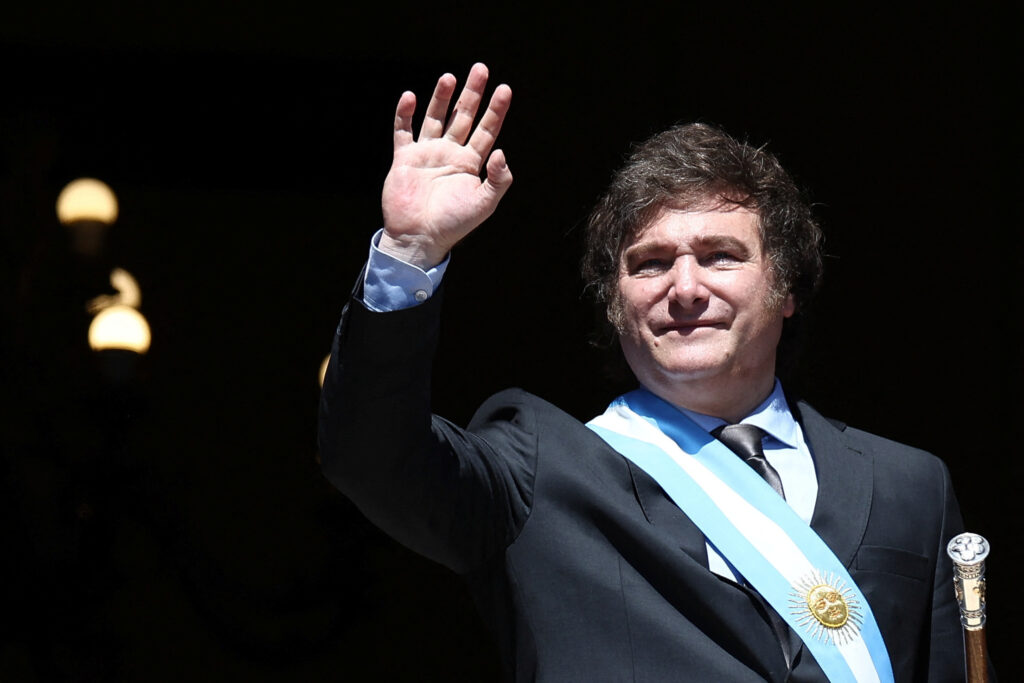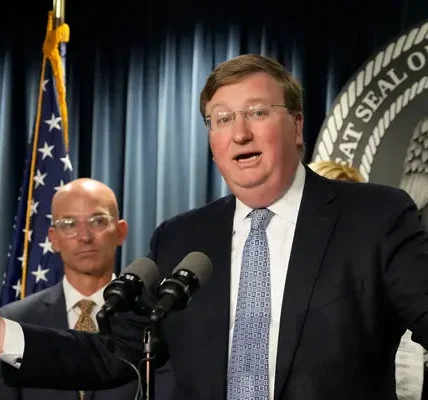Javier Milei was a fringe economist and television commentator a few years ago, most known for his self-described “anarcho-capitalist” libertarian beliefs, his quirky hairstyle, and his erratic outbursts.
After taking office on Sunday, he became the unpredictable leader of Argentina for the next four years. He has promised to cut public expenditure, close the central bank, and replace Argentine pesos with US dollars. Argentina is a country plagued by inflation.
“A new era begins in Argentina today,” said Milei at the opening of his first formal speech as president. “We pronounce today the end of an ongoing and melancholy history of degradation and decreases, and we set out to reclaim our nation.”
Rather of giving the traditional inauguration speech in front of Congress, the just sworn-in president chose to go outside and address an exuberant group of his fans, with his back to the congressional building. Many saw Milei’s odd action as a rejection of the political establishment, even if it wasn’t his first break from Argentine political tradition.

Milei praised the people for adopting libertarianism in a 33-minute speech that covered economic theory and Argentine history, but he also issued a warning: under his economic shock strategy, things would get worse before they get better.
From the steps of Congress, the president said, “We have been left with no choice, but we do not seek nor desire the difficult choices that will have to be created in the upcoming weeks, but we’ll always be committed to Argentines. We will take all the required actions to address the issue brought about by the political class’s 100 years of wastefulness.
Milei used his address to criticize Kirchnerism, the center-left political coalition that has ruled Argentina for 16 of the previous 20 years, in line with his campaign slogans. “I want to be crystal clear,” he remarked.
The nation that the Milei administration takes over is beset by breathtaking yearly inflation that has surpassed 140%. At the unofficial but commonly utilized black market rate, one US dollar was worth around 312 Argentine pesos at this time last year. A dollar now is equivalent to over 1,000 pesos. With two out of every five Argentines surviving below the poverty line, poverty is also on the increase.
Argentina’s economic problems, which existed before former President Alberto Fernández’s administration but were considerably worse during his watch, are the result of a pattern of poor economic management that has been carried out by several administrations. A $44 billion loan from the International Monetary Fund, excessive spending, and the printing of too many pesos have made things worse in recent years.
Milei’s suggested economic policies drastically deviate from Argentine customs. He ran on a platform of shutting the nation’s central bank, dollarizing the economy, and drastically cutting back on government expenditure. The president’s proposed economic experiment has drawn criticism from a number of economists who believe it would more likely harm than benefit Argentina’s most disadvantaged communities.
Milei reiterated his broad-minded recommendations in his inauguration address. He declared, “There is no substitute for shock, and there is no substitute for adjustment.” “Financing is required for gradualism. Sadly, I must inform you that there is no money.”
The president admitted that in the upcoming months, his shock tactic is probably going to cause more unemployment, pay loss, and hardship for Argentines. Short-term economic instability is the “last pill to swallow before we can begin reconstructing Argentina,” according to Milei, who added that “that’s not very different from what has happened in the last 12 years.”
56% of Argentine voters chose Milei, a political novice, over establishment contender Sergio Massa, the past administration’s economic minister, due to dissatisfaction with the status quo and an apparent never-ending economic crisis.

People who are eager for change include Fernando Acosta, a bitcoin worker who resides in the seaside city of Quilmes with his mother and daughter.
“I’m a middle-class worker,” Acosta declared. ” A this location, people have to live paycheck to paycheck. Saving money is a really difficult task. When individuals receive their paychecks, they often go right back to their daily lives and take care of their fundamental needs like eating.
Milei is the sole chance for Argentina, according to Acosta. According to him, over half of Argentines believe Javier is their only option.” “We’re trusting him since his suggestions are sincere. Unlike earlier presidents, he did not deceive us by telling us that gold and silver would be provided. He gives us the real deal.
Since Milei’s fledgling political party, Liberty Advances, only controls seven of Argentina’s 72 Senate seats and 38 of the country’s 257 House members, it is unclear exactly how he intends to implement his drastic reforms.
Given Milei’s parliamentary minority and absence of a formal political organization, political analyst Juan Negri, an adjunct professor at Torcuato Di Tella University in Buenos Aires, stated, “I don’t think he has the political muscle essential to push his agenda.” “A very weak president, that is.”
Milei has softened some of his more controversial positions since winning the election last month and has started forming partnerships with members of the political establishment, or the “political caste,” as he frequently refers to them. This includes Mauricio Macri, the prior president of the center-right, and Patricia Bullrich, the previous candidate of the center-right, who will return to her position as security minister under Macri.
Negri stated, “I believe we’re witnessing him realize that his campaign is over and that a new political game needs to be played.” The good news is that he appears to be conscious of his political vulnerability.
The Milei fan from Quilmes, Acosta, is bracing his family for challenging months ahead by paying attention to the president’s first warning. He expressed confidence, nevertheless, and hoped that his fellow Argentines would follow suit.
“If people truly believe in democracy, they have to allow him to do things. Society voted for something,” Acosta stated. “I think tradition will force him to own up his own guilt if he abuses them. But, God willing, we sincerely hope that everything turns out




